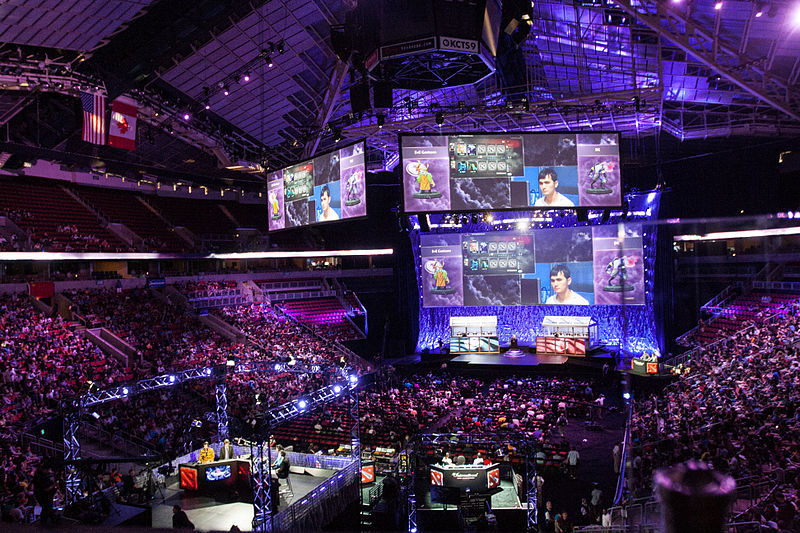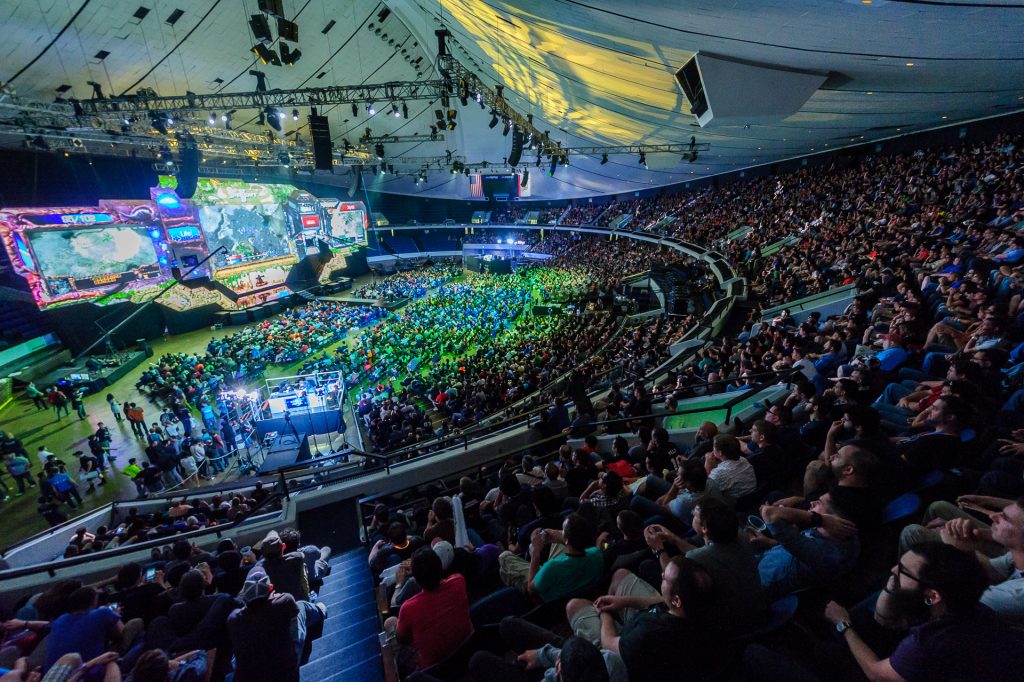Have AI and popularity brought eSports to the cusp of acceptance? The Tokyo Olympics says “not yet”
Andrei Mihai
When the International Olympic Committee (IOC) announced a pre-Olympics eSports (Electronic sports) tournament series, fans of the scene were thrilled. Here it was, after surging popularity and a flurry of media attention, a chance for gaming to step onto the main scene and finally gain recognition.
Except this wasn’t the case. An underwhelming event that barely made any waves did little to reconcile eSports with “real” sports and instead, it left many wondering whether this could be done at all.

More than just games
Gone are the days when video games were “just” video games. Millions of viewers tune in to video game streams every day. Go to a popular streaming platform at any moment and you’ll find a dozen different video games with tens or hundreds of thousands of concurrent viewers – and that’s just the background level of interest. Many of these games are competitive, and when there’s a large eSports tournament going on, the number of viewers can easily surge past 10 or even 20 million viewers – and the figures keep growing year by year.
The eSports industry is expected to surpass the $1 billion mark in 2021, growing by 14% compared to the past year. Global live-streaming audiences are also expected to hit 728 million by the end of the year, up 10% from 2020. Dozens of high-profile, popular games have their own competitions and leagues, and for thousands of players around the world, eSports are quickly becoming a lucrative career.
The field has also gained legitimacy and attention from a series of studies on AI in gaming, and AI is increasingly integrated into many games. Gaming has inspired an AI breakthrough, with one AI initially used for gaming already producing remarkable progress in the field of biology (in protein folding). eSports is becoming intertwined with computer science and this seemed to help cement its place as a serious industry. With the Summer Olympics taking place in Japan (and Japan being one of the best-represented countries in eSports), the time was ripe for gaming to hit the stage.
The IOC seemed to acknowledge this as it announced a pre-Olympic, officially licensed gaming tournament. IOC officials have been mulling the inclusion of video games for a few years already, and the time seemed ripe. But after an exciting trailer, the actual event left much to be desired and showed that popular eSports don’t yet have a place at the Olympic table.
Electronic sports, real fans (and real disappointment)
The tournament featured five disciplines:
- Sailing: Virtual Regatta
- Cycling: Union Cyclist Internationale (UCI)
- Rowing: Open Format
- Motorsport: FIA/Grand Tourism
- Baseball: World Baseball Softball Confederation (WBSC) – eBaseball Powerful Pro Baseball 2020.
If you haven’t heard of any of these, well… they’re not very popular, and not even close to being the biggest eSports out there. Instead, they are simulations of “actual” sports. IOC president Thomas Bach told the Associated Press that it was because “some eGames are not compatible with the Olympic values,” and he sees many popular games as promoting violence.
“The Summit sees great potential for cooperation and incorporating [electronic games simulating sports] into the sports movement,” read a recent blog post. “Many sports simulations are becoming more and more physical thanks to Virtual and Augmented Reality, which replicate the traditional sports.”
“With regard to other electronic games, […] at this stage, the sports movement should focus on players and gamers rather than on specific games.”
So the IOC is currently only looking for sports-themed VR games. They’ve even partnered with international sports federations, which in turn have partnered with game publishers to design virtual versions of their respective physical sport. But this doesn’t offer any entrance for actual eSports into the Olympic scene – if anything, it seems to narrow its chances.
Should we consider eSports as sports?
Some would jump to argue that eSports shouldn’t even be considered a sport. That’s a reasonable point – after all, even chess was only recognized by the IOC in 1999, and it’s been played everywhere in the world for hundreds of years – and although it’s been recognized as a sport, chess is still not a discipline at the Olympics.

But in recent years, the list of sports included at the Olympics included non-traditional disciplines like skateboarding, surfing, and (starting in 2024) break dancing. The argument that a sport needs to involve physical movement or activity also seems rather unconvincing, when we consider the Olympic disciplines of shooting.
Here’s how the IOC defines a sport or a discipline:
“A sport or discipline is included in the Olympic program if the IOC determines it to be widely practiced around the world, that is, the popularity of a given sport or discipline is indicated by the number of countries that compete in it.”
So the door is still not wholly closed, especially as an IOC report issued a recommendation “consider the addition of physical virtual sports in the Olympic Program in cooperation with the respective International Federations.” The Asian Games Committee has already decided to embrace eSports as competitive sports, and the 2022 Asian Games will include eSports (though it’s not clear which ones, yet).
But with the Tokyo Summer Olympics set to kick off on the 23rd of July and no popular eSports on the Olympic horizon, fans of virtual sports will be left feeling disappointed. For all the impact that computers have on the world, computer games are, for now at least, still just *computer* games. But in the not too distant future, if current trends continue, we may see an Olympic medal for eSports.
The post Have AI and popularity brought eSports to the cusp of acceptance? The Tokyo Olympics says “not yet” originally appeared on the HLFF SciLogs blog.